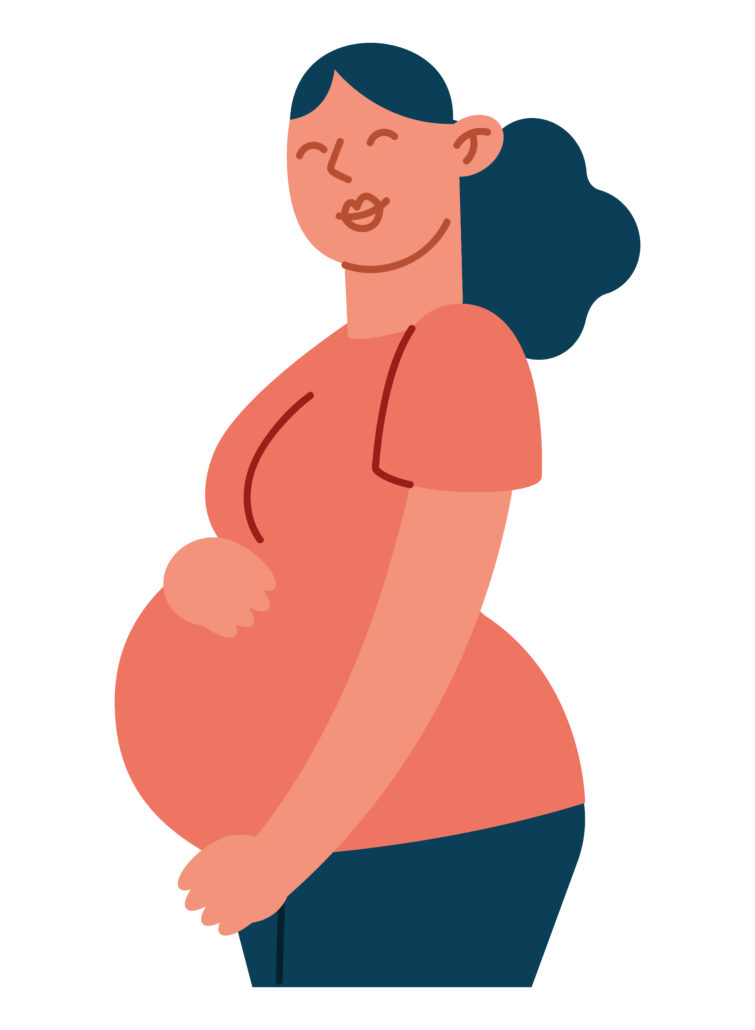Remote Pregnancy Research Study
At the University of Iowa’s Center for Disabilities and Development (CDD), we are doing research to learn more about how pregnancy, early childhood experiences, and genetic factors affect child development and behavior, including autism spectrum disorder.

Fast Facts

Currently Pregnant in the 1st or 2nd trimester

18-50 Years Old

Compensation Provided

Remote
Study Background
The University of Iowa’s Center for Disabilities and Development is researching how pregnancy, early childhood experiences, and genetic factors influence child development, with a focus on autism spectrum disorder (ASD).
We are inviting pregnant individuals (less than 27 weeks) to participate in a study that tracks pregnancy and early childhood development through simple, at-home activities using a cell phone. Participants will record short questionnaires, videotape their baby’s play, and later provide cheek swabs to analyze genetic markers related to child development. The study will explore how prenatal stress and early social experiences contribute to changes in genes associated with autism, with the goal of identifying modifiable pathways for early intervention.
Help us make a difference in understanding and treating autism!

Study Background
The University of Iowa’s Center for Disabilities and Development is researching how pregnancy, early childhood experiences, and genetic factors influence child development, with a focus on autism spectrum disorder (ASD).

We are inviting pregnant individuals (less than 27 weeks) to participate in a study that tracks pregnancy and early childhood development through simple, at-home activities using a cell phone. Participants will record short questionnaires, videotape their baby’s play, and later provide cheek swabs to analyze genetic markers related to child development. The study will explore how prenatal stress and early social experiences contribute to changes in genes associated with autism, with the goal of identifying modifiable pathways for early intervention.
Help us make a difference in understanding and treating autism!

Additional Information
This study aims to examine how prenatal stress and early social experiences contribute to epigenetic changes associated with social communication deficits in autism, with the goal of identifying modifiable pathways for early intervention in autism and other developmental disabilities.
You may qualify for a study if you meet the following criteria.
Inclusion Criteria:
- 18-50 years old
- Currently pregnant in the 1st to 2nd trimester
- English speaking
Exclusion Criteria:
- History of severe mental illness in the past year, resulting in inpatient admission
Individuals who are pregnant (less than 27 weeks) are invited to participate, and will use their cell phone to track their pregnancy, their baby’s development until age 2, complete short questionnaires, and videotape their baby’s play. All research activities can be completed in their home using their cell phone, and should only take a few minutes to complete (no more than 30 minutes total per month). After their baby is born and at 2-3 years of age, they will be sent a kit to swab their child’s cheek, so that we can look at changes in genetic markers related to child development.
- Complete Online Consent: If eligible, you’ll start by filling out an online consent form.
- Monthly Tasks: Receive monthly text/email prompts to complete short questionnaires, upload photos/videos of your child, and share how you’re feeling. This takes about 30 minutes per month until your baby turns 3.
- Cheek Swab Kit: After your baby is born, you’ll receive a cheek swab kit to collect samples for genetic analysis.
- Phase II (If Invited): If your child shows developmental delays, you may be invited to Phase II, which includes:
- A developmental assessment (online or in-person)
- Two more cheek swabs, 6 months apart
- A 24-hour language experience recording device for your child
Families will receive free developmental screenings, and a video of their child’s changing facial expressions over time. If any developments or behavioral concerns are identified, a free online developmental assessment will be arranged. Families will also earn points to be entered into a drawing for a $1000 gift card every 6-months. Participants who enroll in Phase II will receive up to $60 via gift card.
There is no cost for you to participate in our research study.